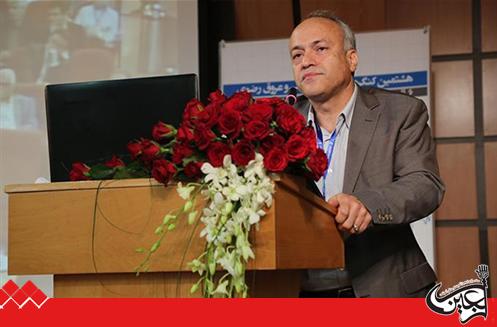Dr Ghasem Soltani, in a meeting with Arab journalists and media representatives, referred to the history of the construction of the Razavi Hospital, and stated, “The Razavi Hospital was established in 2005 with the help of Astan Quds Razavi in the city of Mashhad, with a capacity of 200 beds. After five years, the second phase of the specialty complex was completed with a capacity of 120 beds, and now the hospital is operating with 320 beds and more than 50 special care beds at the center.”
Introducing various departments of the hospital such as heart surgery and general surgery, neonatal care, cancer center, nuclear medicine, women's department, clinics and paraclinics, etc., Soltani added, “The hospital has all the expertise of the medical world and we are trying to meet the needs of Iranian patients as well as the patients who come from neighboring Muslim countries to Razavi Hospital and to provide our clients with the best possible service.”
The director of the Anesthesiology Department of Mashhad University of Medical Sciences in defining the scientific discussion of the hospital explained, “With the managerial changes that took place in Astan Quds Razavi, the hospital tried to connect with the universities of the European countries besides the domestic universities and now we are working with German doctors in the heart surgery and cardiology department fields and we hope that we can provide patients with the best possible service using the latest scientific data.”
Concerning the equipment of this hospital, directing manager of the Razavi Hospital said, “Hospital equipment requires a very high technology, which is only monopolized by several Western countries, but with the help of God and according to Astan Quds Razavi’s policy, since the establishment of the hospital we were able to provide the equipment of the day. For example, while there are only two major centers of nuclear medicine in Iran in Tehran and Mashhad, we have been able to use them in the treatment of cancer through the promotion of nuclear medicine and the production of radioisotopes. We also try to coordinate and equip the hospital with the best world technology in such areas as radiology, heart and cancer with devices like Citi Angio and the advanced MRI machine.”
In response to the correspondent of the Arabic language network of Al-Manar, regarding choosing the Razavi Hospital for treating patients in the Islamic countries and neighboring countries, director of the operation room and anesthesiology department of Razavi Hospital said, “Choosing the treatment location for patients has different aspects. They are eager to travel to countries that are closest to their cultural and religious backgrounds for using the facilities available in those countries. Economically, many people are also willing to receive the same services at a lower cost than other countries.”
“Razavi Hospital has hosted patients from neighboring countries such as Iraq, Bahrain, Qatar, Tajikistan, Turkmenistan, Saudi Arabia and so on. In the holy city of Mashhad, in addition to the many attractions to attract tourists, we are seeing more and more treatment attractions in different hospitals especially in the Razavi Hospital such that the rate of health tourism attraction has shown a 70% increase in patients of neighboring countries, especially in Muslim countries”, he continued.
Regarding the insurance and treatment costs for patients at Razavi Hospital, Soltani said, “Iranian patients can use the services of the Razavi Hospital with all existing insurances in the country in accordance with the rules and standards of insurance. In the case of foreign patients, we act according to the tariffs set by the government for us. But it is better that the foreign patients are covered with the international insurance.”
At the end of the conversation, Arab-speaking media visited different parts of the Razavi Hospital including the nuclear medicine, the international patients unit, and hospitalization rooms (VIP).
Friday 20 February 2026

